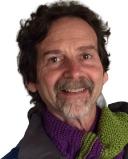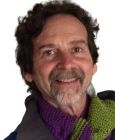Career
Reflections on Therapeutic Mastery, Part 1
Excerpts from a Personal Interview
Posted March 13, 2015
Q. What is it that you do (or who you are) that you believe is most important in contributing to your effectiveness as a master therapist, meaning a professional who produces consistently good outcomes and feels reasonably confident in your work?
A. Very tough question but I would venture that it has much to do with having "settled" a great deal in my own life through my own in depth therapies. I was in psychoanalysis at age 5 following the tumultuous death of my seven year old brother, and I was in a crucial existential-analysis (with a psychoanalytically oriented existential therapist) at about 22, when I first began my graduate studies. Looking back, I view both therapies as life-saving in some way; the first because it was a key connection of stability ("rock solid" presence) that very understandably was lacking in my young life at the time. I'm sure I internalized this sensitive yet profound and supportive relationship which subsequently helped me to simply cope, and then a few years later, actually enabled me to become turned on by, facsinated with the bigger questions of life. I moved from a position of abject terror to one of gradual intrigue and even wonder toward the world (never completely losing of course, the humbling recognition of the tragic). This manifested in my increasing fascination with science fiction, creative play, and a growing capacity to love.
By the time of my second critical therapy at 22, I had just suffered a kind of nervous breakdown (precipitated by several stressors, most having to do with being far away from home in a very unusual and challenging setting and faced with major life decisions). I was in a pretty bad way (quite regressed really)--having experienced major night terrors, early morning tremors, and a fear that I was going psychotic (I actually did experience frightening and intrusive thoughts as well as perceptual illusions, but fortunately had the wherewithall to realize I was experiencing these things). This second major therapy was also life-changing and the most important quality it taught me was to "stay with myself," no matter how scary the fears. This took a sustained period of time of course, but it taught me tremendously about the power of presence to heal, both from the standpoint of my therapist and what I learned to mobilize within.
I want to couple these aforementioned remarks with the correlative point that I have had marvelous mentors in my in professional career. Rollo May was my spiritual-philosophical mentor who also invited me to write a book with him ("The Psychology of Existence")*, and Jim Bugental and his wife Elizabeth were my core clinical mentors, as I spent 3 years with them as my supervisors. I really can't underestimate the role that these (and some other mentors such as Bob Masek, Don Rice and Stanley Krippner at the University of West Georgia and Saybrook University respectively) have played in my life. Jim and Rollo in particular helped me develop the tools to organize my thinking about therapy in a way that has been extremely valuable both to my professional development as a writer and teacher, as well as to my practical development as a clinician. Hence the procurement of a quality mentor and confidant is also key in taking the raw material of personal therapy and marshaling it into a viable and cohesive therapeutic career.
So it was these discoveries about exploration and presence that I feel are essential to who I've become both as a person and as a professional, and I believe they are the essence of what I offer clients. Similar to the therapists I had the great fortune to connect with, I believe my clients feel that I can relate to them in some deep and unverbalizable way, and that somehow my own "survival" is a key basis for the possibility that they too may survive, or even thrive at some point from their ordeal. These findings also explain my resonance with the "contextual factors" research that is so prominent in the psychotherapy outcome literature. I frame this research in terms of the power of presence to give clients a sense that they are understood at a profound level, that they are supported and attuned to, and that they have hope, beyond any personally and culturally defined sickness.
Beyond these factors, I've also been told that my gentle and respectful disposition, my soothing voice, and my appreciation for clients' hidden or shameful inner lives are significant for their willingness and ability to heal (that is become more integrated within themselves).
This interview series will continue in my next blog entry.
Kirk Schneider
[The foregoing interview is partly excerpted from and elaborated on in Kottler, J. & Carlson, J. On Being a Master Therapist: Practicing What You Preach, Wiley, 2014. See http://www.wiley.com/WileyCDA/WileyTitle/productCd-1118225813.html]
*Psychology of Existence: http://www.amazon.com/Psychology-Existence-Kirk-Schneider/dp/0697809625/ref=sr_1_1_twi_2?s=books&ie=UTF8&qid=1426285172&sr=1-1&keywords=psychology+of+existence


